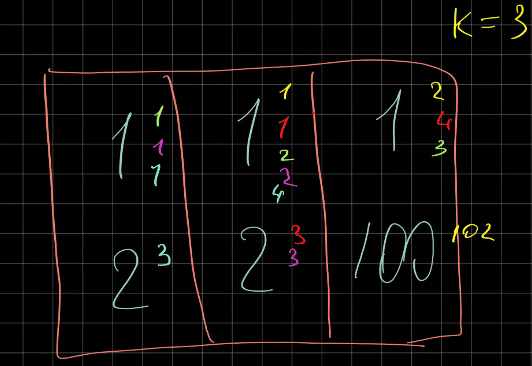Leetcode daily # 15.04.2023
2218. Maximum Value of K Coins From Piles
[2218. Maximum Value of K Coins From Piles](https://leetcode.com/problems/maximum-value-of-k-coins-from-piles/description/) hard
fun maxValueOfCoins(piles: List<List<Int>>, k: Int): Int {
val cache = Array(piles.size) { mutableListOf<Long>() }
fun dfs(pile: Int, taken: Int): Long {
if (taken >= k || pile >= piles.size) return 0
if (cache[pile].size > taken) return cache[pile][taken]
var max = dfs(pile + 1, taken)
var sum = 0L
for (j in 0..piles[pile].lastIndex) {
val newTaken = taken + j + 1
if (newTaken > k) break
sum += piles[pile][j]
max = maxOf(max, sum + dfs(pile + 1, newTaken))
}
cache[pile].add(max)
return max
}
return dfs(0, 0).toInt()
}[blog post](https://leetcode.com/problems/maximum-value-of-k-coins-from-piles/solutions/3418459/kotlin-dfs-cache/)
#### Join me on Telegram
https://t.me/leetcode_daily_unstoppable/181
#### Intuition
Given the current pile, we can assume there is an optimal maximum value of the piles to the right of the current for every given number of `k`.
#### Approach
We can cache the result by the keys of every `pile to taken`
#### Complexity
- Time complexity:
O(kn2)
- Space complexity:
O(kn2)


